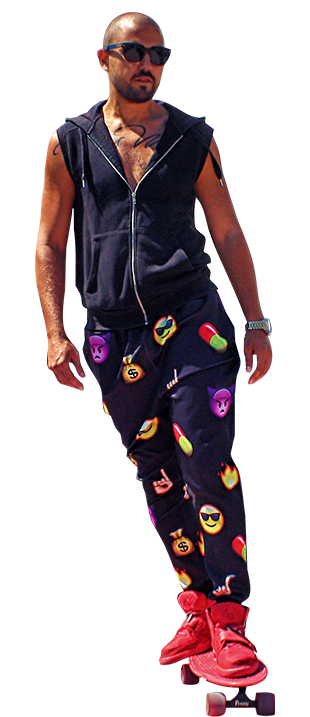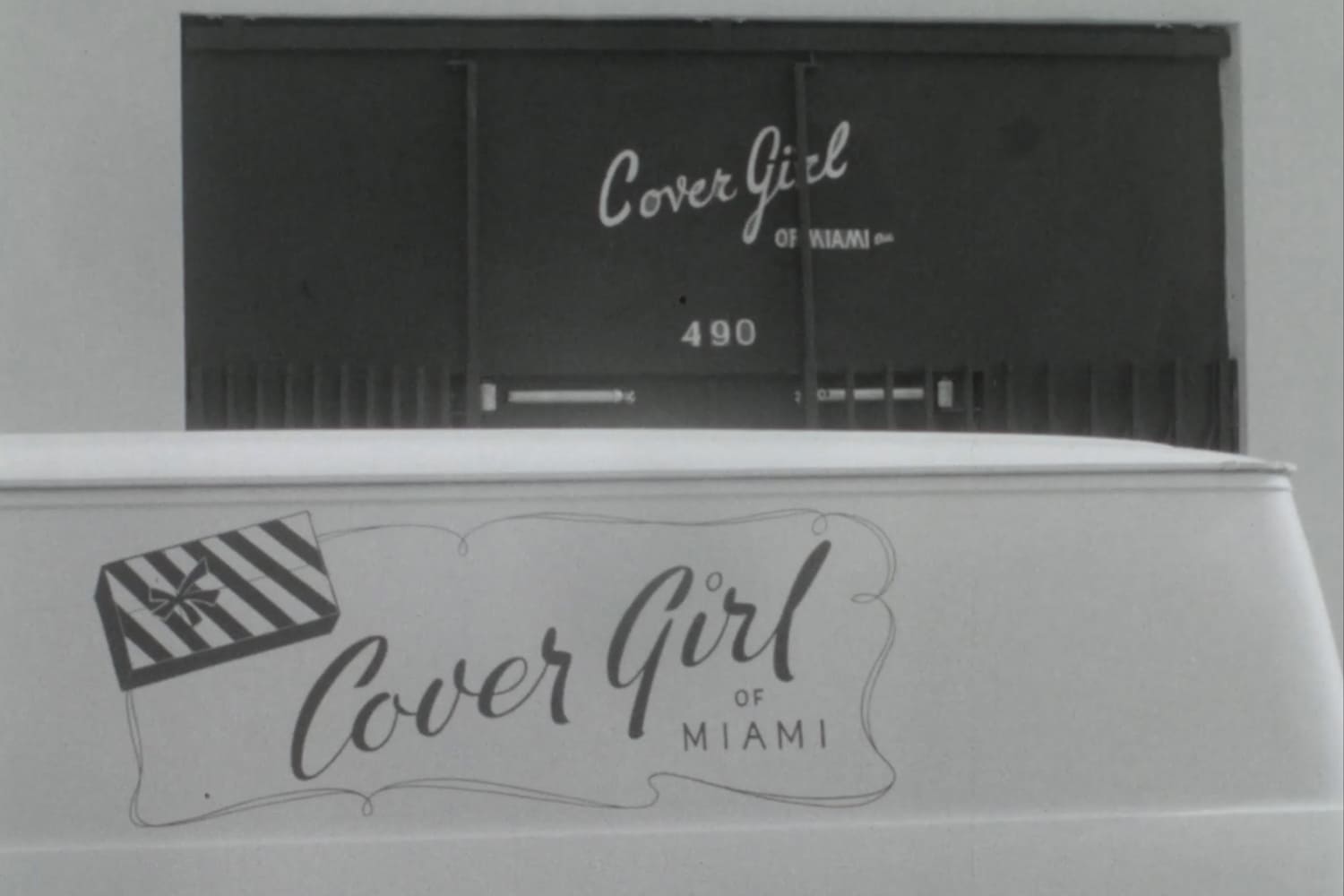
"Miami Schmatta," which makes its world premiere at Miami Jewish Film Festival, documents the golden age of the garment industry that included businesses such as Cover Girl of Miami.
An intriguing made in Miami documentary which explores the city's immigrant legacy and role in shaping the American garment industry makes its world premiere at the Miami Jewish Film Festival.
"Miami Schmatta," directed by Miami-based filmmakers Aaron Glickman and Clare Vickery, screens at 7:30 p.m. on Monday, Jan. 13 at the Michael-Ann Russell Jewish Community Center in North Miami Beach. It is also available to stream on the festival digital screening room from beginning Tuesday, Jan. 14 through Thursday, Jan. 23.
The film features interviews with Miami business owners, tailors and fashion designers as it documents the industry’s golden years as a successful post-World War II industry, its expansion through the 1980s and its struggles amid shifting trade policies in the 1990s. A scaled-down garment industry endures in Miami despite challenges and labor shortages.
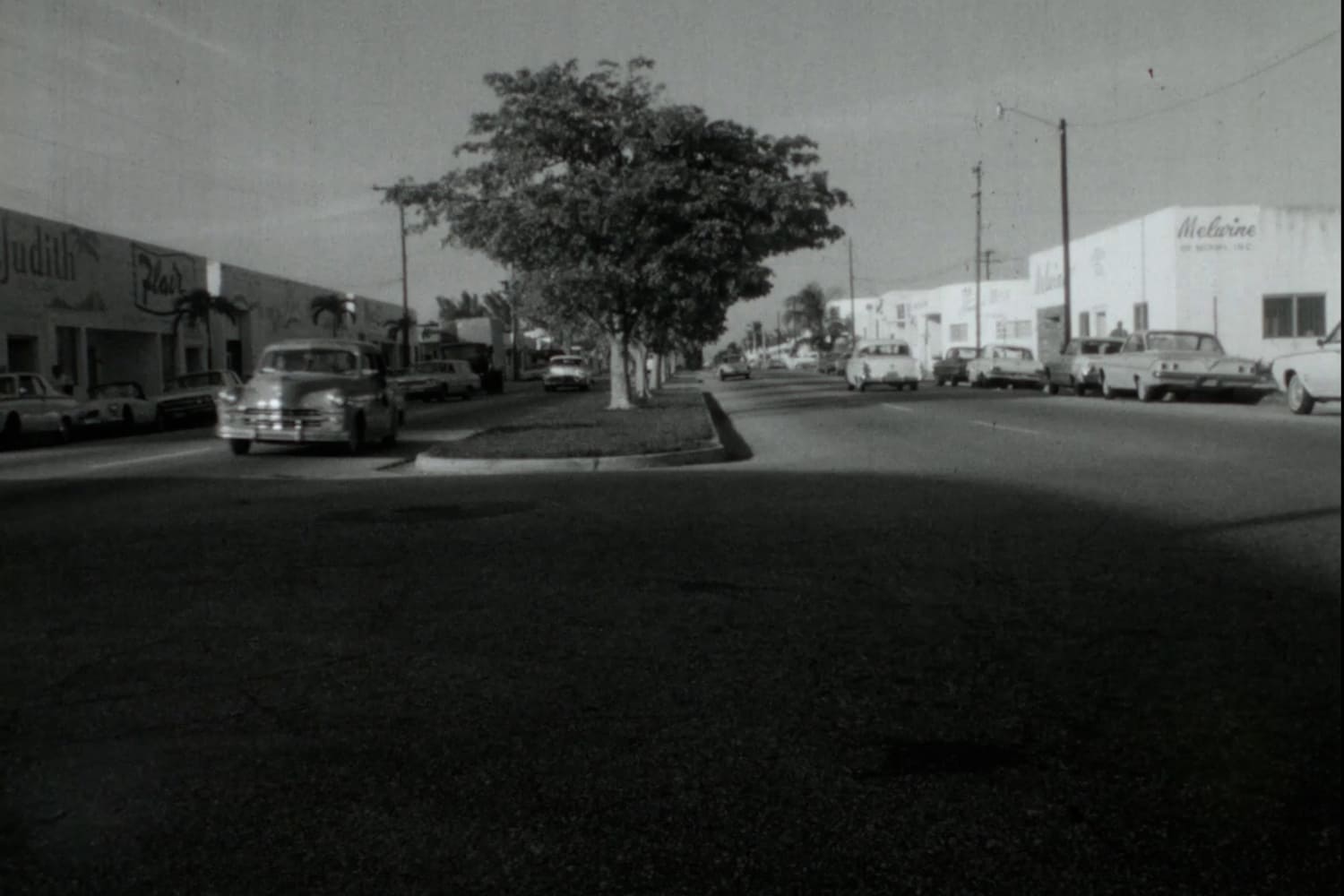
A woman shown sewing during "Miami Schmatta," making its world premiere at the Miami Jewish Film Festival.
Both Glickman and Vickery explained what they hope viewers can take away from watching the film.
"I want audiences to gain a little understanding of Miami's past and understand the impact that immigrants have had to Miami and America," said Glickman. " I also want people to look at Miami's past through a lens based not on sensationalism, but hard work."
Glickman said his family has been in South Florida since 1926 with his great grandfather on his father's side, and since the 1940s through his mother's side.
"They helped build this city through hard work that has nothing to do with the Paradise Lost narrative that is glorified through other projects," he said. "These garment makers embody the same spirit that my family brought to Miami and I hope that people can understand that."
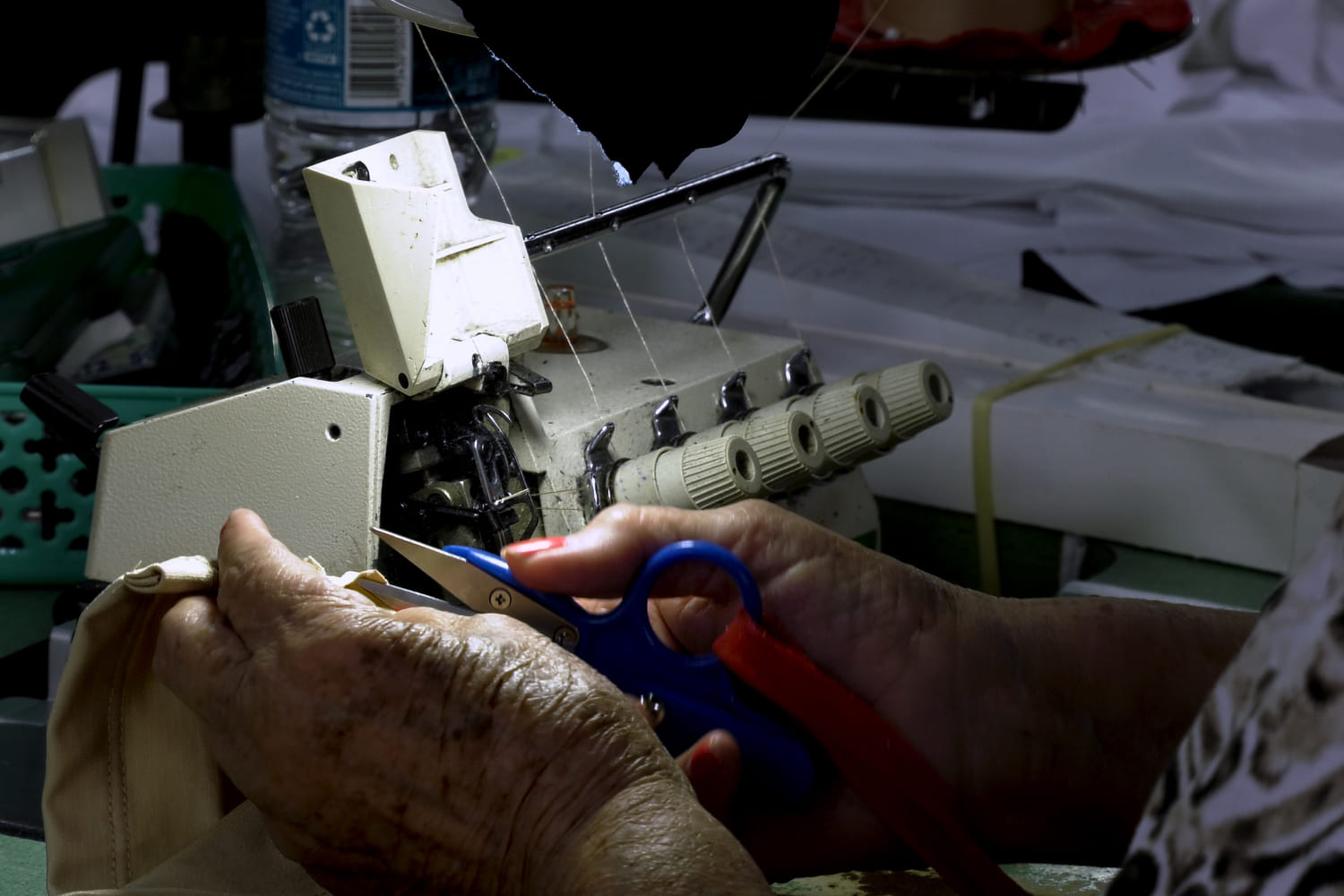
A shot of 5th Ave. in Miami in the 1950's during the film "Miami Schmatta," which makes its world premiere during Miami Jewish Film Festival.
Vickery said she hopes a bygone era might resonate with people who view the film in some ways.
"The era that launched the garment industry was one in which people truly seemed to have opportunity at all levels of manufacturing at factories of all sizes," she said. " Americans seemed to be making things at home, including clothing. Wynwood was bustling with small businesses. I think both Aaron and I were impressed that all people seemed to value appearance and dressed the part. Things have changed drastically."
When asked about the inspiration for making the film, Vickery said that her mother would receive dress patterns at home to make her clothing.
"She tailored my father’s clothes. She made my dresses," said Vickery. "Her mother had done the same as did my mother’s sister. Mom loved fashion and had been in New York City as a catalogue model. The notion that Wynwood had a fledgling garment industry and Miami’s fashion moment flashed with Versace were initial reasons but the stories of immigrants, the backbone of the society drove the project."
Vickery initiated a project through a grant to record oral histories.
"The grant for this project was written in 2022 when I heard a few stories about Wynwood and wanted to know more," Vickery said. " I was watching my favorite art institutions there leave and the fabric of the neighborhood dissolve. It turns out creativity and artistic industry really was part of Wynwood’s DNA and the amount of Mid-mod signage would rival that of Miami Beach only the advertising adorned small low rise retail shops in the garment district. "
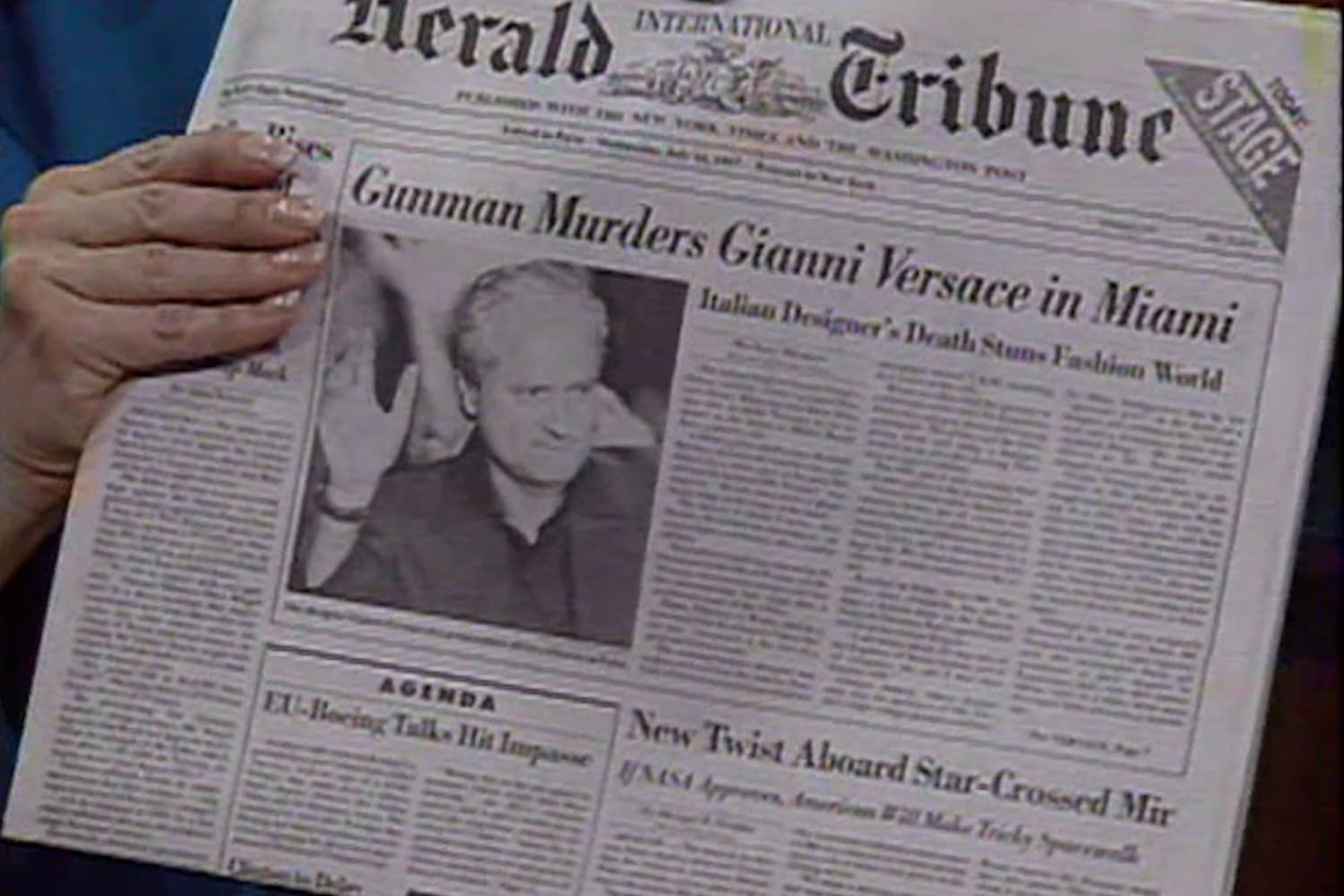
A newspaper headline of the murder of fashion designer Gianni Versace during the film "Miami Schmatta," which screens during Miami Jewish Film Festival.
Glickman said he came on board once the interview process began and the film evolved organically from there.
[RELATED STORIES: Read other stories by Sergio Carmona about films in the fest: "Sabbath Queen" and "Swedishkayt: YidLife Crisis in Stockholm."]
"Once I realized the potential from hearing the stories, I dedicated myself to the process and realized that simply stringing together oral histories would do a disservice to the people we interviewed," said Glickman. "A story had to be told, which required greater research and many, many hours of editing."
Glickman thinks viewers will be moved by the true stories of the people involved and how the garment industry facilitated so much hope for people coming to this country.
" The people in our film provide first-hand accounts of the American Dream and power that America holds for people who truly want to work and have a better life," he said.
Glickman said he learned a lot while interviewing people in the film.
"Miami had a garment industry that was the third largest in the country," he said. "I learned about the policies in the '90s that caused its demise. I learned about the tailor crisis and the need for more tailors. It's a dying trade and not because of a lack of demand. There are real opportunities in the field. America is a tapestry of individual stories from people of all different backgrounds and faiths, and hearing these stories teaches us about ourselves."

Designer Ashley Liemer in the film "Miami Schmatta" which screens during Miami Jewish Film Festival.
Glickman explained the importance in telling Miami's legacy and history through the film.
"Miami has changed so much and our film will help people understand the roots of Miami," he said. " It shows hard working people who came to Miami for a better life. It's a story that doesn't rely on the sensational aspects of Miami's past, but focuses on the hard working people who truly built this city. "
Vickery said it's fitting for the film to make its world premiere at the Miami Jewish Film Festival.
"The Jewish immigrant story of resilience in the wake of World War II is a big part of the film., she said. "Schmatta, Yiddish for rags, is part of the business jargon. Entire families fled Europe for a better life in the US using the trades they were forced to work in as Jews – used clothing and jewelry – and made beautiful things for a new nation. The Varat and Horenstein families hired Cubans and many other immigrants like them who fled persecution in their home countries. Women fleeing communism in various South American nations, despite their college training, returned to making clothing to start over in Miami."
The film makes its world premiere at 7:30 p.m. on Monday, Jan. 13 at the Michael-Ann Russell Jewish Community Center, 18900 NE 25th Ave., North Miami Beach. It is also available to stream on the festival digital screening room from beginning Tuesday, Jan. 14 through Thursday, Jan. 23.
See the miamiartzine.com guide to the Miami Jewish Film Festival. For tickets and information, go to miamijewishfilmfestival.org. The 28th Miami Jewish Film Festival runs through Thursday, Jan 23.




